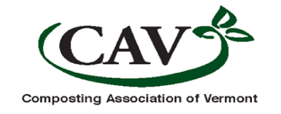Compost as a Climate Solution
Join us for a discussion on how compost improves soil health, increases rainfall infiltration, boosts drought resilience, and sequesters carbon with Karl Thidemann, Co-founder and Co-director of Soil4Climate. Soil4Climate is a global movement made up of heroes who are championing soil as a climate solution. They communicate the science, policy, and practices of restoring soil to capture carbon, replenish water tables, produce healthy food, reverse desertification, mitigate conflict in dryland areas, and, in general, provide promise for a bountiful and life affirming future.
Here are some of the resources that Karl mentioned in his presentation:
The Johnson-Su Composting Bioreactor (2017, 26 mins.)
Down to Earth: The Planet to Plate Podcast: Why is so much topsoil disappearing... (2019, 34 mins.)
David Johnson, PhD, is a senior research scientist and molecular biologist at the Institute for Energy and the Environment at New Mexico State University in Las Cruces. We talk about the process of restoring soil, and how farmers, ranchers, and land managers can be incentivized to engage in healthy soil practices.Quorum Sensing In The Soil Microbiome - Dr. Christine Jones (2019, 43 mins.)
Building New Topsoil Through The Liquid Carbon Pathway - Dr. Christine Jones (2019, 37 mins.)
[34:35] “We found almost a foot of new topsoil built directly on top of that gravel and sand layer, in 10 years.”
Allen Williams, PhD - Restore Soil and Ecosystem Health with Adaptive Grazing (2018, 42 mins.) Note: Adaptive Grazing is short for Adaptive Multipaddock Grazing, a term used by some academics to describe Allan Savory’s Holistic Planned Grazing.“... two to three times the available forage biomass [with Holistic Planned Grazing] ...”
“To me, Allan [Savory]’s results are spectacular. Despite recent drought, [Holistic Planned Grazing] has transformed this ranch from desert to rich grassland. Today, the grass holds the water, and streams that were dry for decades are flowing again ... it could be the best thing, the absolute best thing, conservation has ever discovered.“
- M. Sanjayan, PhD, CEO of Conservation International and former lead scientist of The Nature Conservancy
Conservation biologist M. Sanjayan, PhD, calls Allan Savory's Holistic Planned Grazing "Spectacular" (2015, 2 mins.)The National Audubon Society created its Conservation Ranching program in response to steep declines in grassland bird populations. What in the World is Conservation Ranching? Your guide to Audubon's program to make cattle ranching prairie- and bird-friendly October 2, 2017
Global Cooling by Grassland Soils of the Geological Past and Near Future Retallack 2013
How Did Humans First Alter Global Climate? William F. Ruddiman, Scientific American, March 2005
A bold new hypothesis suggests that our ancestors’ farming practices kicked off global warming thousands of years before we started burning coal and driving carsAllan Savory’s TED Talk - How to fight desertification and reverse climate change (2013, 22 mins.)
A 2019 General Mills-funded Life Cycle Assessment found each pound of White Oak Pastures regenerative beef produced via Allan Savory’s Holistic Planned Grazing (aka Adaptive Multipaddock Grazing) sequesters in soil 3.5 pounds of carbon dioxide equivalent, reversing global warming. By contrast, the production of each pound of plant-based “meat” emits 3.5 to 4 pounds of carbon dioxide equivalent, exacerbating global warming.
Carbon Footprint Evaluation of Regenerative Grazing at White Oak Pastures
Presenter
Karl Thidemann, cofounder of Soil4Climate and a cofounder of Somerville Climate Action, serves on the board of the Somerville Community Growing Center, a quarter-acre urban oasis offering artistic, cultural, and educational programming in an organic garden setting. Karl has experience in the environmental laboratory field, and he marketed electric vehicles for the company that had its roots as MIT’s Solar Car Team. His focus is climate communications, including poetry. Karl holds a B.A. in chemistry from Wesleyan University.
Facilitator
Natasha Duarte is the Director of the Composting Association of Vermont (CAV). She represents CAV in policy initiatives, develops and leads outreach and education initiatives, and promotes the production and use of compost as vital to soil health through practices that contribute to water quality, plant vigor, and environmental resilience. Community scale composting was the cornerstone of Natasha’s Peace Corps work in Senegal, West Africa, where she helped farmers reclaim land from termite mounds and turn the poorest areas of their fields into the most productive. She is currently contributing to a USDA Rural Utilities Services funded project – “Implementing Rural Community Composting in Connecticut, Maine, Massachusetts, New Hampshire, New York, and Vermont.” She has an M.S. in Soil Science from N.C. State University and a B.A. in Anthropology from the University of Vermont.










